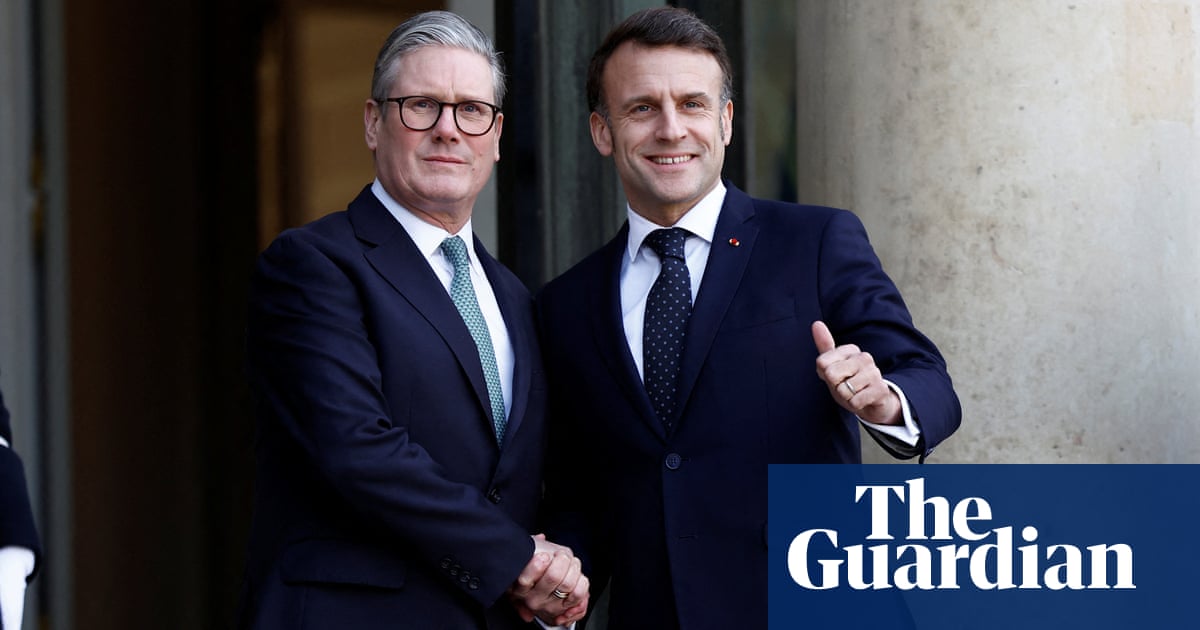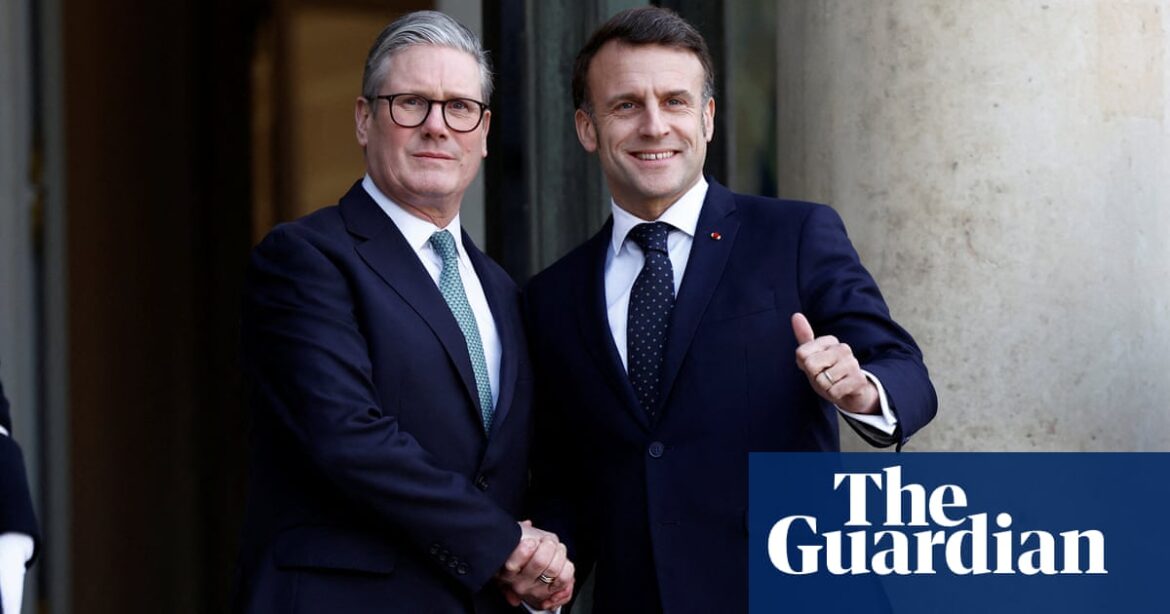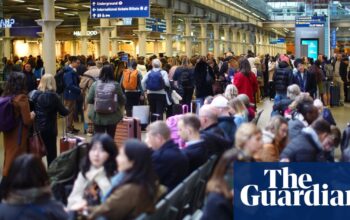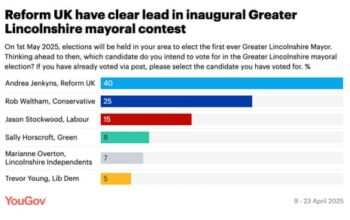
Keir Starmer has not ruled out holding a parliamentary vote on committing UK troops to a peacekeeping role in Ukraine in the event of a ceasefire, after calls from some within Labour and the Lib Dems.
Downing Street hinted that a US-backed guarantee would be needed in order for the UK to send ground troops, saying it was an “essential” part of any ceasefire deal with Russia.
Starmer confirmed for the first time on Sunday night he was prepared to put British troops “in harm’s way” in order to protect a peace deal in Ukraine that ended the war launched by Russia.
The prime minister joined emergency talks with European leaders in Paris on Monday, where leaders aimed to devise a strategy in response to Donald Trump’s push for a deal with the Russian president and his warnings that the US would reduce its defence commitments in Europe.
On Monday the Liberal Democrat leader, Ed Davey, said his party backed the UK sending troops to protect a ceasefire deal – but parliament must be consulted.
“The PM is absolutely right when it comes to the deployment of British troops in Ukraine to uphold any peace deal and deter Putin,” Davey said.
“We’ve been very clear that the UK now needs to lead in Europe. That means ensuring that President [Volodymyr] Zelenskyy isn’t bullied into accepting a deal which effectively hands victory to Russia.”
A Lib Dem spokesperson said that the party would back the deployment, but parliament “should have the opportunity to have its say”.
The Labour MP Diane Abbott said she was concerned about the proposal to use British troops to keep the peace. She posted on X: “If it is a durable, lasting peace then there will be no need for British troops on ground. If not, and it could put this country at risk and troops in harm’s way – then parliament should vote on it first.”
The Conservatives have no plans to push for any Commons vote on troop deployment. The party’s leader, Kemi Badenoch, who was speaking at a conference on Monday morning about threats to western civilisation, did not mention Ukraine in her address.
No 10 did not explicitly commit to allowing parliament to vote on any potential deployment, saying it was too early in the process. During Starmer’s time in opposition he called for a law that military action needed consent from the Commons.
Starmer’s spokesperson said there was no change to that position but committing to a vote would be “getting ahead of ourselves”. He said: “There has more broadly been cross-party support for the UK’s backing of Ukraine since the conflict first began and we’ve always been very clear that we are going to play our role in future security guarantees but we’re not going to get ahead of decisions on that and obviously parliament will continue to be updated and consulted as appropriate.”
No 10 also confirmed on Monday that Starmer would meet Trump in Washington next week, saying he would seek to “deepen the special relationship across trade and investment, security”.
The US secretary of state, Marco Rubio, is leading a delegation to Saudi Arabia for talks with Russian officials on the outline of a ceasefire agreement. Ukraine has not been invited to the talks and Zelenskyy said Kyiv would not accept the outcome if it was not involved.
Speaking before the Paris summit, Starmer said the UK was facing “a generational challenge when it comes to national security”.
He said it was important to have “realistic and credible answers” for how to make any peace agreement last. “I think that we need to do more. We need to step up in terms of our collective response in Europe, and by that I mean capability. By that, I mean playing our full part when it comes to the defence of the sovereignty of Ukraine if there’s a peace agreement, and, of course, when it comes to funding and training.
“So, on all those fronts, I want the UK and all European allies to step up, and for the UK to play a leading part in that.”
After the summit, a No 10 source said Starmer was clear that any decision to commit troops to Ukraine was entirely conditional on strong security guarantees from the US.
Starmer intends to start the conversation about what that might look like when he meets Trump in Washington next week. “It’s not realistic Europe can do it on its own. But the nature of that backstop obviously has a variety of options,” the source said.
Source: theguardian.com



